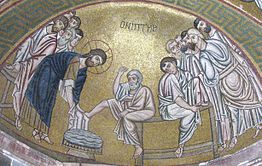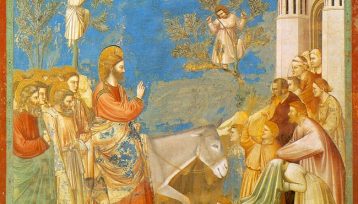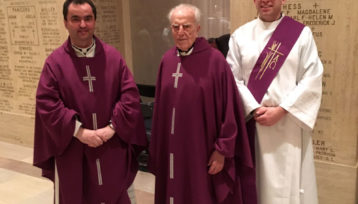EASTER IN HUNGARY
by Emese Kerkay
Source: http://magyarmuzeum.org/
The Hungarians call Lent the Great Fast (nagyböjt). Tomorrow is Ash Wednesday, Tomorrow it won’t be as it is today, sing and lament the Hungarians. During Lent it was forbidden to eat any meat. Therefore the day before Ash Wednesday is called in Hungarian húshagyó kedd, meaning Meat Abandoning Tuesday.
Centuries ago, on Palm Sunday, it was customary to bless not only branches but also the various flowers of the season. In fact, the flowers are still mentioned in the antiphons after the prayer of blessing. Thus, the name Flower Sunday (Virágvasárnap) is used in Hungary.
Good Friday, the most solemn day of Lent was spent in total fast almost all over the country. By the time Good Friday (nagy-péntek) had arrived the house was clean, the baking completed and the eggs decorated. In some regions however, the eggs were deco-rated only on Good Friday!
Holy Saturday (nagyszombat) was – still is – the day of blessing of the food. In a food basket kalács [babka], smoked ham, red eggs [decorated eggs] and salt, in some places also wine is taken to the church to be blessed. This food will be eaten after the resurrection ceremonies.
Easter is referred to as the Festival of Meat (HÚSVÉT). On this day meat can be eaten again after the long fast (40 days).
In Hungary, egg gifts were given in front of the church by godparents to their godchildren. This custom probably originates from the lovefeast of the early Christians. Hungarian children exchange decorated eggs (hímestojás) as a token of their friendship at Easter. Little girls seal their friendship with a bride’s plate. It contains a bottle of wine and a large pretzel, surrounded by deco-rated eggs. A group of girls, usually about eight, accompany the plate. The bride, the recipient girl accepts the gift by taking a few eggs and placing down several of her own, before sending the plate back. Hungarian men often decorate and present eggs themselves – gifts which the girls would treasure for many years.
Easter Monday (Dousing Day, Water Plunge Monday) Locsolkodás is the main reason for which eggs are decorated in Hungary. This day provides for plenty of mischief. Boys surprise the girls by dousing them thor-oughly with buckets or bottles of water all the while reciting a little rhyme: Good day, good day, my lily, I water you to keep you from wither-ing, or Water for your health, water for your home, water for your land, here’s water, water! Don’t shriek and cry and run away: It’s good for you on Dyngus day. Formerly this practice was much rougher, for young men literally dragged girls to ponds, wells or streams at dawn and threw them in. It was expected that the girls accept this all good-naturedly and reward their tormentors with decorated eggs, bread and a glass of brandy/wine – or all three. The dousing was supposed to make of them good future wives with many children.
Hungarian girls, obliged to color twenty or even thirty eggs for a special boyfriend, knew that he might be given many more eggs by several different sweethearts. The lucky recipient would put them all away for several weeks and then get them out again to have another look: the girl whose egg had lost most color was pining for him.
Mostly every village had its own egg-decorating artist (íróaszszony = writing woman), an old woman who had done the work all her life. From her the HÍMESTOJÁS could be obtained by those who were not very skilled.
At Easter we wish one another:
HAPPY EASTER AND MANY RED EGGS!
BOLDOG HÚSVÉTI ÜNNEPEKET ÉS
SOK PIROS TOJÁST!



